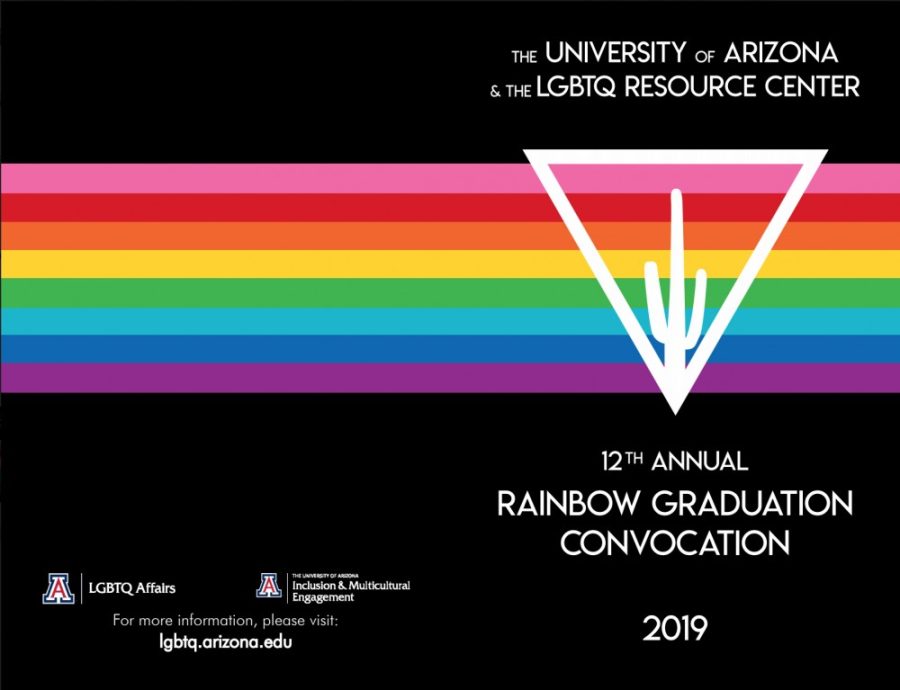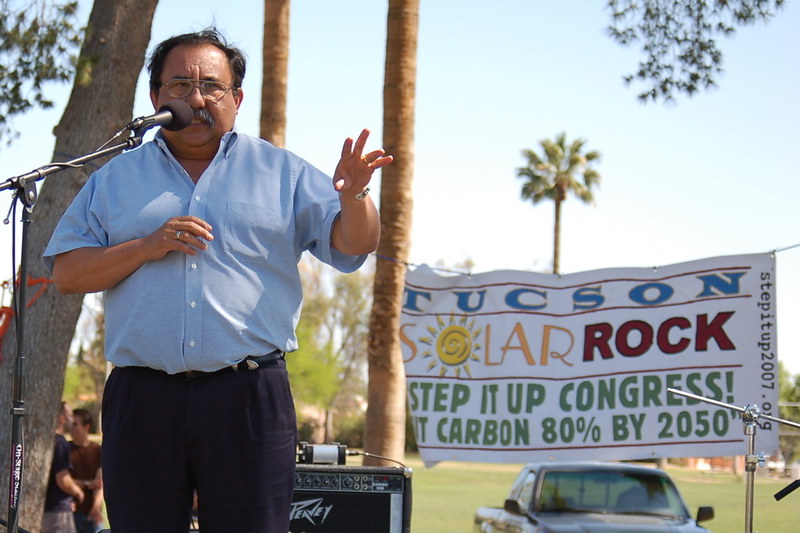Members of the University of Arizona LGBTQ community celebrated both their identity and college achievements at the annual Rainbow Graduation ceremony presented by LGBTQ Affairs.
Rainbow Graduation celebrates queer-identifying students and is open to all graduating undergraduate students, graduate students and professional students that identify as LGBTQ+ or are allies.
This year, the Rainbow Graduation was held May 4 in the Gallagher Theater in the Student Union Memorial Center.
RELATED: LGBTQ+ fraternities/sororities balance exclusivity with inclusivity
Many universities across the United States have ceremonies similar to Rainbow Graduation, which are sometimes called lavender graduations and celebrate queer-identifying students.
Sav Schlauderaff, a Ph.D. student in gender and women’s studies, said the UA Rainbow Graduation brings in people from Tucson’s LGBTQ communities such as drag queen Lucinda Holliday and poet Teré Fowler-Chapman to MC or present.
Schlauderaff said the rainbow graduation ceremony is different from the general college graduation because students feel comfortable to express their identity in a space where faculty, staff, friends and family support the entire community.
“You’re in a room where you know that someone’s either part of the LGBTQIA community or they’re an ally,” Schlauderaff said.
Lexy Reyelts is a senior public management and policy student who was a member of the rainbow graduation planning committee for the past two years and was finally able to experience the ceremony this year instead of planning it.
In comparison to college commencement ceremonies, Reyelts said it’s more personal because students choose a quote, send in a picture and share career aspirations on a slideshow. Graduates are also able to pick someone to present them for a minute on stage.
“It really highlights the achievements of each graduate there,” Reyelts said.
Nikki Mastrud, a senior microbiology student who also participated this year, started hanging out at the LGBTQ Resource Center their freshman year and said their university experience centered around the center.
Mastrud explained many colleges want to look past a student’s sexual orientation.
“They want to say no, you’re a graduate first, you’re a scientist first, whatever it is,” Mastrud said. “And this is an opportunity to not just accept queerness but celebrate it and say ‘look at all of our people and look at all of these cool things that we’re doing and look at our community.’”
Mastrud said Rainbow Graduation is “really a chance to celebrate that aspect that really the university as a whole would never do.”
RELATED: BICAS WTF: fixing bikes and fixing stereotypes
Schlauderaff also highlighted the importance of cultural centers and said many of students have spent a lot of their time being involved in the resource centers.
“Some have done a lot of work on campus, and it’s important that they also get recognized for everything they’ve done,” Schlauderaff said.
Mastrud said they appreciated the chance for one last opportunity in college to celebrate queer identity.
“Rainbow grad as a whole is saying … that we’re here and we’re queer, and it’s really exciting to celebrate that, especially during graduation season,” Mastrud said.
Follow Alana Minkler on Twitter








